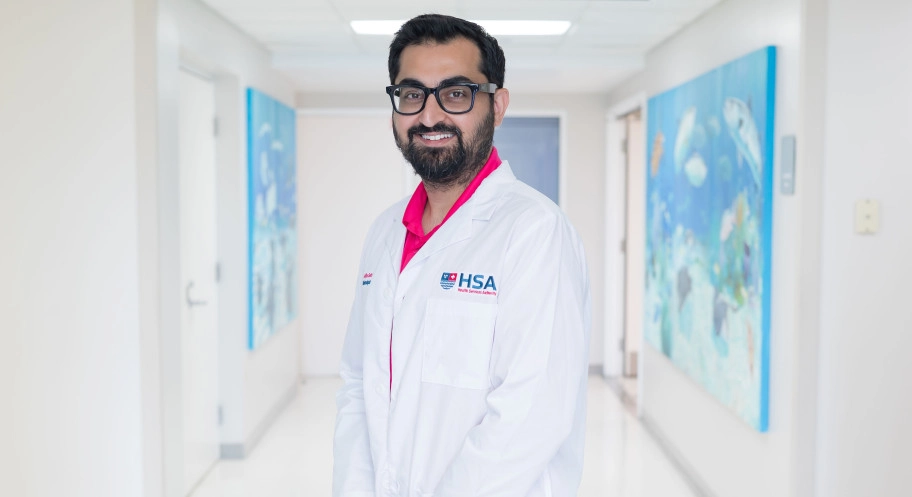HSA Ophthalmologists Urge Diabetics not to Lose Sight of Eye Health
Health Services Authority Consultant Ophthalmologists are encouraging Cayman Islands residents to value their vision by scheduling regular eye examinations, particularly those living with diabetes or who have a family history of glaucoma.
According to the STEPS 2023 National Health Survey, 10.8% of the population has raised blood sugar or diabetes. HSA Consultant Ophthalmologist Dr. Aditya Sethi warns that neglecting regular eye care can lead to serious complications such as diabetic retinopathy.
“Don’t wait for vision loss to visit your eye doctor — make annual eye screening part of your diabetes care,” emphasised Dr. Sethi. “Diabetes is one of the leading causes of preventable blindness worldwide. Over time, high blood sugar damages the tiny blood vessels in the retina — the light-sensitive layer at the back of the eye — leading to a condition called diabetic retinopathy. Diabetes also increases the risk of glaucoma and early cataract formation.”
Diabetic retinopathy can develop in anyone with Type 1 or Type 2 diabetes. The risk increases the longer a person has diabetes and when blood sugar levels are not well controlled.
The STEPS Survey also revealed that one-third of people diagnosed with diabetes have never had an eye exam, despite the National Institute for Health and Care Excellence recommending annual or biannual screening. Dr. Sethi stresses that individuals must take an active role in their eye health by keeping blood sugar, blood pressure, and cholesterol under control; avoiding smoking; maintaining a healthy diet and regular exercise routine; attending annual eye checkups even when vision appears normal; and promptly reporting any sudden blurring, floaters, or visual distortions. These steps, he notes, can significantly reduce the likelihood and severity of eye complications.
Dr. Sethi underscores the importance of early detection, noting that diabetic eye disease often progresses silently with few noticeable symptoms until vision loss occurs. “Persons with diabetes should have a comprehensive dilated eye examination at least once a year,” he advised. “This should include retinal photography or Optical Coherence Tomography to detect early signs of diabetic retinopathy or macular edema, as well as eye pressure measurement and optic nerve evaluation to screen for glaucoma.”
For those with unstable vision and early changes or poor blood sugar control, Dr. Sethi recommends that exams may be needed more frequently. Additionally, he advises that pregnant women with diabetes should have an eye exam early in pregnancy and be closely monitored throughout.
Dr. Sethi specialises in cataract, refractive, and pediatric eye care. For more information on HSA’s Ophthalmology Service, visit hsa.ky/medical-services/ophthalmology.
Latest News
-
Missing: Keron ParchmanPolice/Cou...20 February 2026, 05:39 AM
-
Statement on the Premier’s Update Regarding Cannabis Decriminalisation and the National LotteryPolitics20 February 2026, 05:38 AM
-
Woman Arrested Following Collision Involving Parked VehiclesPolice/Cou...20 February 2026, 05:37 AM
-
Mayo Clinic opens patient information office in Cayman IslandsBusiness20 February 2026, 05:35 AM
-
Public Consultation Opens on Update to Immigration Application FeesGovernment...20 February 2026, 05:34 AM


